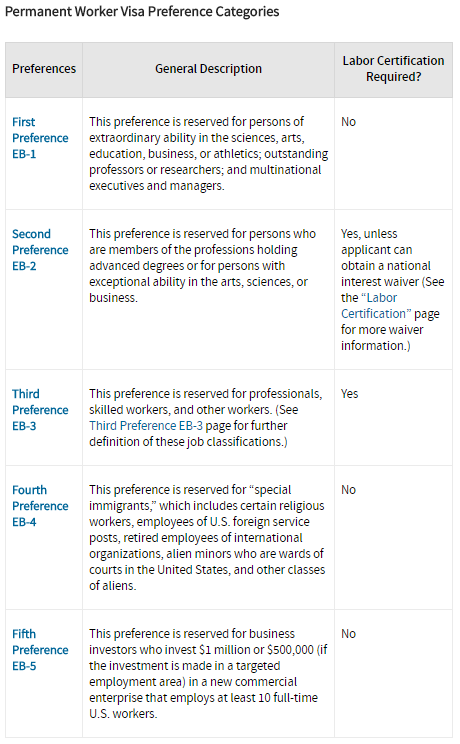From last few days I am getting lot of queries from readers on working in USA or job opportunities in USA. While most of the readers come from varied educational backgrounds, most of them have some common questions like:
How do I get to work in the USA/ United States Of America?
What do I need to do to get a job in USA?
What kind of visas are required to work in USA? and how can I get it?
Answers to all of these questions are actually available on the Department of Homeland Security USCIS website https://www.uscis.gov/ However, looking at the number of queries & curiosity I thought to publish all the relevant information I could gather in this blog post. Here it goes:
Working in the USA can be better understood if divided into three high level categories:
1. Temporary workers
2. Students who apply for employment when they are eligible
3. Permanent Workers
Now let us understand each of these categories in detail.
Temporary workers:
This is a category for Nonimmigrant workers to work temporarily in the USA. In order to apply you need a employer who can file a nonimmigrant petition on your behalf with USCIS.
The most popular/ widely used Nonimmigrant Classification for a Temporary Worker or in simple language the most popular/ widely used type of visas as mentioned on the USCIS website are:
H-1B Workers in a specialty occupation and the following sub-classifications:
H-1B1 - Free Trade Agreement workers in a specialty occupation from Chile and Singapore.
H-1B2 - Specialty occupations related to Department of Defense Cooperative Research and Development projects or Co-production projects.
H-1B3 - Fashion models of distinguished merit and ability.
L-1A Intracompany transferees in managerial or executive positions.
L-1BIntracompany transferees in positions utilizing specialized knowledge.
Source of this information is the USCIS website, please refer Temporary Nonimmigrant Workers for latest information/ updates.
For full time students, there are two visa categories F and M. There are certain eligibility criterias for applying student visa in either F1 or M1 category. In their first academic year students with F1 visa may accept on campus employment subject to certain conditions and restrictions, however off campus employment is not allowed. After the first academic year, students on F-1 visa may engage in three types of off-campus employment. These are as given below:
- Curricular Practical Training (CPT)
Students on M-1 visa may engage in practical training only after they have completed their studies.Source of this information is USCIS website, please refer Students and Employment Page on USCIS Website for more details/ latest updates.
Permanent Workers
There are five different visa categories for immigrants. Some of these categories require your employer to obtain an approved labor certification from the U.S. Department of Labor (DOL). Details are mentioned on the USCIS website are given below:
I hope you find this information helpful. If you are more than 18 years old you would also like to read this post How Much Money Would One Save In USA? and How To Get A Green Card?
Other blog posts of interest:
USA Visa Basics L1A L1B and H1BHow To Go Onsite?
Most Valuable Skill For Your Life
21 Important Things To Know If You are Traveling To USA For The First Time
How To Hunt For Job After Career Break
5 Secrets of Salary Negotiations






